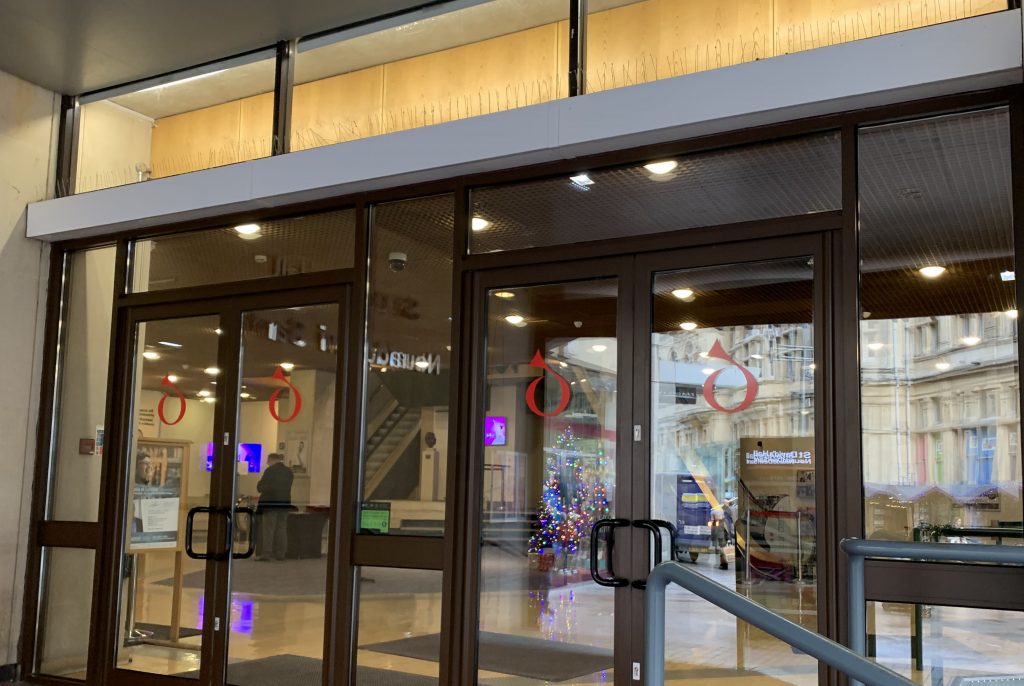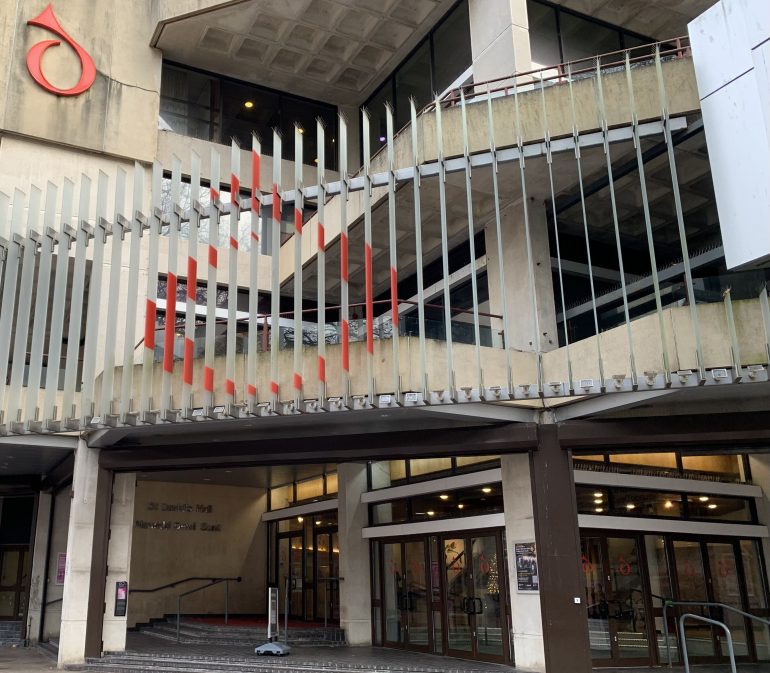Cardiff Council is debating whether to hand over running of the famous concert hall to Academy Music Group
A PROTEST outside City Hall against plans to lease St David’s Hall to a private company has been organsed for 3pm this Friday (December 9).
The protest will coincide with an extraordinary meeting of Cardiff Council – called by the Shadow Member for Culture, Parks, and Events – to debate the plans ahead of a final council decision on December 15.
Campaigners say the loss of the venue to a privatate company would be a severe loss to varied arts programming in the city.
However, Cardiff Council faces an estimated £53 million budget deficit for the coming year and the annual £700,000 subsidy to the hall, allied to ongoing upkeep and required repairs, means the building is becoming financially untenable in the current climate.
A petition set up in opposition to the plans has so far received more than 19,000 signatures.
The demonstration on Friday has been organised by Cardiff Peoples’ Assembly, a city-wide group campaigning against austerity cuts and privatisation.
The protest aims to lobby councillors to vote against the plans to hand over the running of the concert hall to Academy Music Group, part-owners of Live Nation which operates the Motorpoint Arena and will operate the planned new music arena in Cardiff Bay.

If the plans were to go ahead, Cardiff Council would still own St David’s Hall however the management of the building would be handed over to AMG.
AMG is the UK’s largest owner-operator company and is Involved in the ownership of 24 venues across the country, including the O2 academy venue in nearby Bristol.
“St David’s Hall belongs to the people of Wales. Cardiff Council has no right to privatise it. The Arts cannot be run like a for-profit business,” said Adam Johannes from Cardiff People’s Assembly.
“Privatisation will mean a national Welsh cultural institution will likely deliver less arts education, and outreach to diverse audiences; cuts to classical music, cultural and community programming in favour of more commercial programming (as well as) less links with the local community.”
Concerns have also been raised around structural changes to the building which is in the process of being listed. There are also concerns about the potential impact that the renovations could have on the hall’s acoustics which were rated in the top 10 best sounding concert halls in the world by Business Insider back in 2016.
As part of the plans, the permanent stall seating will be removed and replaced with reinstallable seating in order to increase the hall’s capacity to 2,500.
In an email sent out on December 2, St David’s Hall raised concerns over the future of classical music events if the plans were to go ahead.
“The council has not given any indication of how the future provision of classical music/community events will be secured in Cardiff nor identified a budget for this but say they will consult with stakeholders,” said a spokesperson for the venue.
“The main concerned being voiced is the speed at which this momentous decision is taking place and the lack of consultation or information about the new arrangements.”
Opened in 1982 the Hall, located on the Hayes, has become one of the major sites for classical music in Cardiff alongside the Millennium centre located in Cardiff Bay.
The hall, listed as the National Concert Hall and Conference Centre of Wales, hosts the prestigious biennial Cardiff Singer of the World competition and the Welsh proms alongside other musical events including jazz, soul, blues, folk rock and pop.
“What’s important is that it should remain a hall that is used to promote all different forms of art and culture, especially Welsh music and art,” said Ian James, a regular visitor to the hall.
“If it does turn into an O2 Academy-style arena it’s going to alienate generations of audiences who go to the hall for things like MOR concerts and more varied styles of music.
“Taking away an arts centre from Wales capital will surely have an impact on the city. Wales being without a concert hall seems unthinkable.”
The planned takeover of management of the hall comes alongside an increase in running costs for councils across Wales. With demands for social care, inflation, and energy costs having major impacts on council budgets.
According to a spokesperson from Cardiff Council, operating costs for the hall require an annual subsidy from the council that often totals more than £1 million a year.
Cardiff Council has stated that the future of the venue and its staff will remain secure even if the planned takeover goes ahead.
“The council knows the importance of St David’s Hall to classical music lovers and the proposal does protect the main classical programme, community events, and includes opportunities for these to be extended,” said a Cardiff Council spokesperson.
“The proposal also commits to a substantial investment to upgrade the building, ensure the hall’s reputation for world-class acoustics would remain and to protect all existing employees on their current terms and conditions.”
However, protestors against the plans say that the council should be doing more to fight back against cuts to local services.
“We believe that it is morally wrong that Welsh councils and the Welsh Government have not challenged Tory austerity, but instead managed it for over a decade,” said Mr Joannes.
“Councils should not act as local conduits of Tory austerity, making more and more cuts to local services, community facilities and cultural institutions, but should instead unite local government unions, community groups, the arts community, and residents to fight the UK Government for the funding our towns and cities need.”



